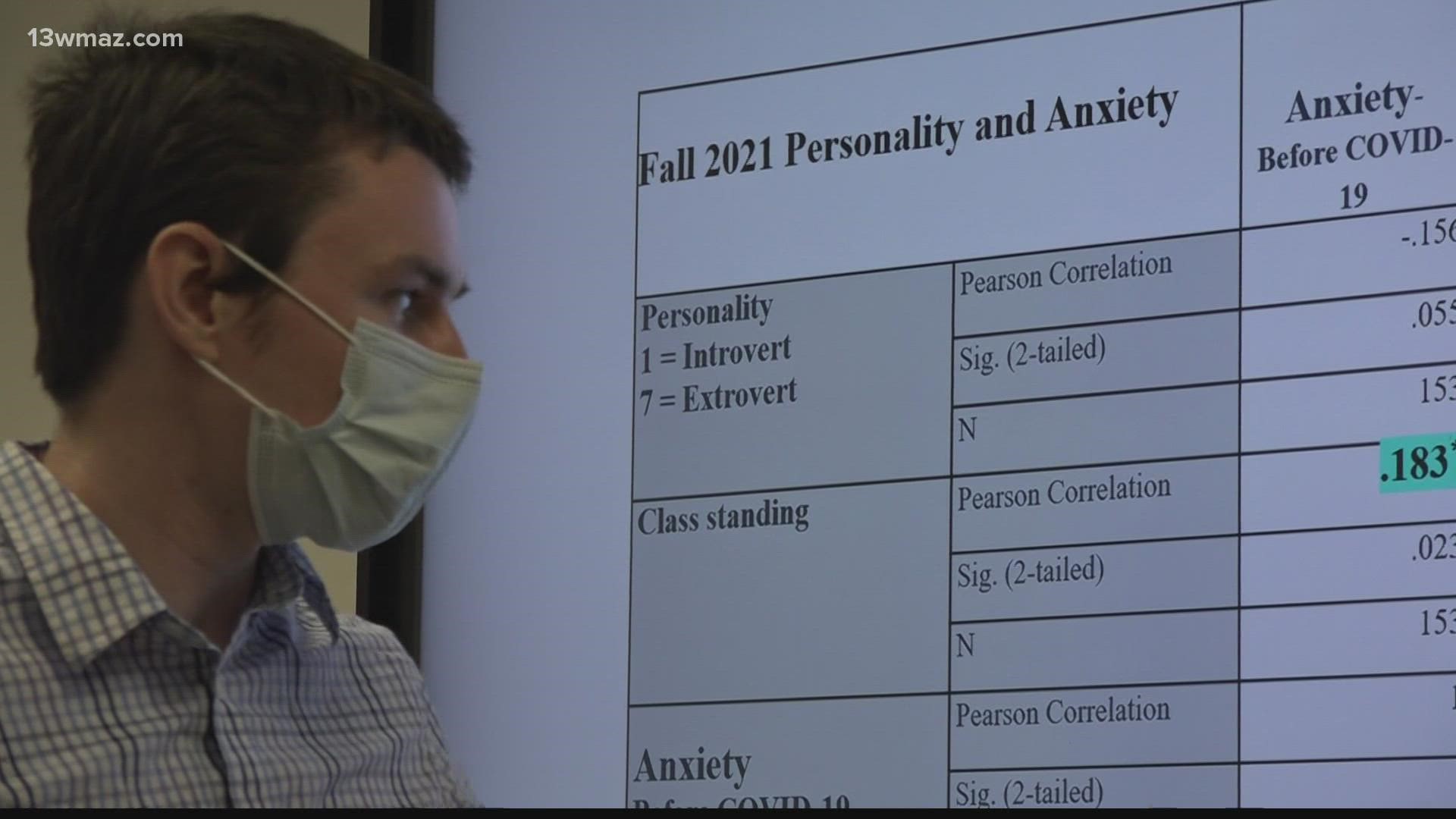MILLEDGEVILLE, Ga. — Five Georgia College students recently completed their study on how COVID-19 affected students’ mental health over the last two years. So, what did they find?
The study surveyed 154 psychology majors. They focused on the effects of quarantine, fear and isolation.
Senior psychology major Joseph Wenke says they expected to find that extroverted students became more anxious, but that wasn't the case.
"We actually found that they were less anxious during the pandemic and we think that it was probably because they were more likely to use things like Zoom," said Wenke.
Overall, their study found the lonelier someone was, the worse they rated their mental health.
"We saw a big spike in loneliness at the beginning of the pandemic and a big drop in mental health ratings," said Wenke.
Sophomore marketing major Nicolas Carresquero says he had a tough time during his freshman year making friends because of the social distancing.
"The mask mandate had just started, so we were all masked and six feet apart in every class," he said.
Fortunately, he lived in a dorm his freshman year and was able to create a group with the people in his dorm for interaction, but he doesn't like being in a pandemic.
"I'm not a fan of isolation or being on my own. I really liked being around people and interacting," said Carresquero.
Even though anxiety and loneliness were seen in students who were introverted and extroverted, there are also solutions.
"We just wanted to emphasize and encourage people to get at least 30 minutes of exercise three days a week. Overall they'll see a great difference especially through this hard time," said senior psychology major Maryelle Michael.
Michael studied the correlation between mental health and physical exercise. She found that there was a spike in exercise and a decrease in anxiety and loneliness.
"People were still able to adapt and still get in the necessary amount of exercise," she said.
Carresquero says internet influencers also helped him stay motivated and be active.
"[I] started focusing on my diet and exercising as much as I could, like five or six times a week. It was nice," he said.
Some of the other findings were students who had pets did better during the pandemic, and those who spent more time online did worse.

